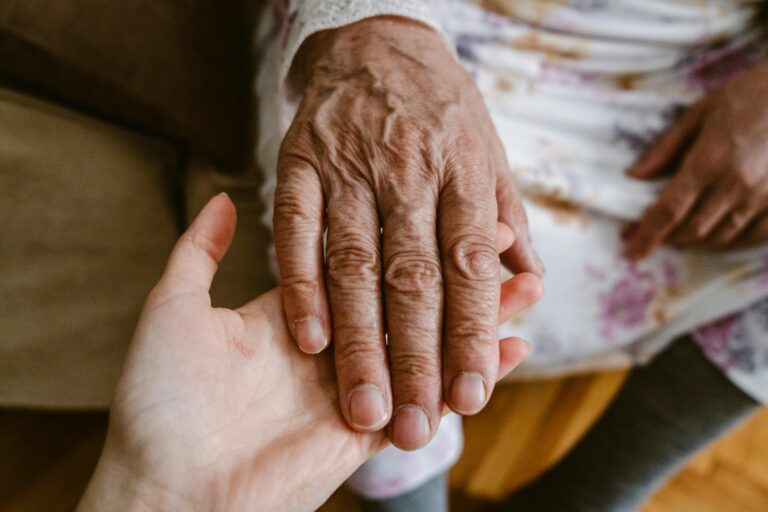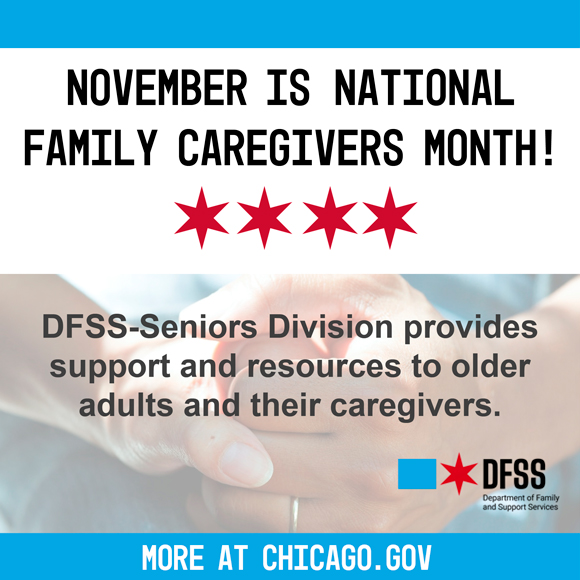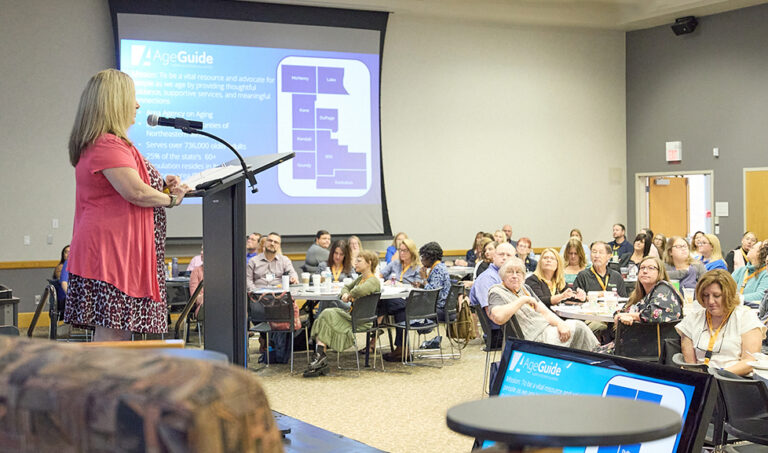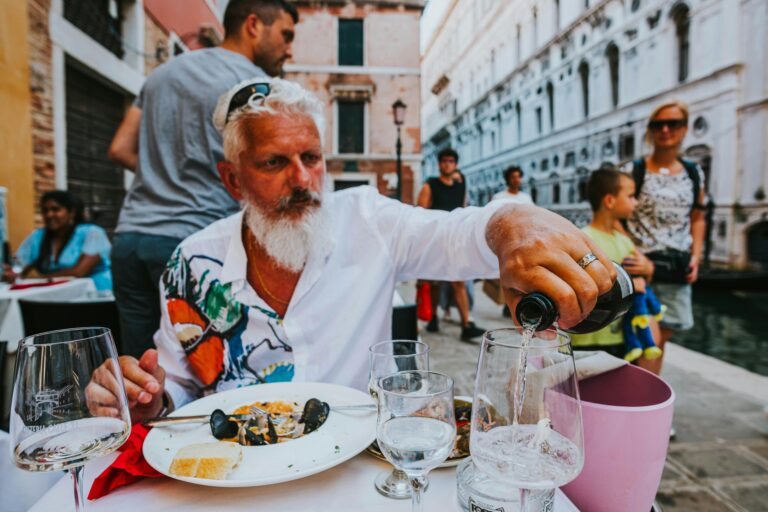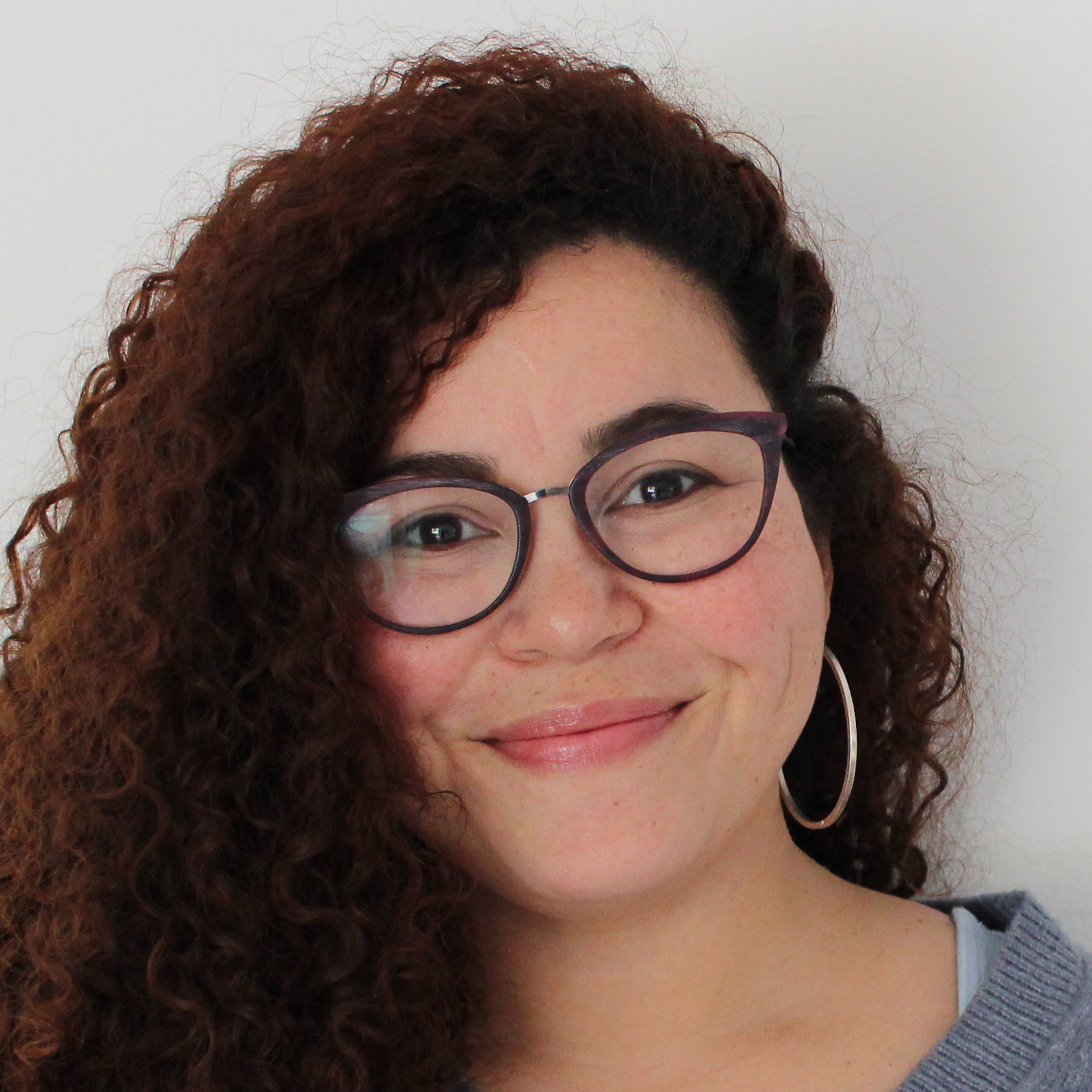
Clavel is a Venezuelan journalist and co-founder of the Network of Journalists from the Venezuelan Amazon.
Older Venezuelans in the U.S. struggle with shifting immigration policies
![]() Fact checked by Katie Scarlett Brandt
Fact checked by Katie Scarlett Brandt
Mariela Sucre, a Venezuelan asylum seeker, has spent the past few weeks feeling utterly overwhelmed. There’s too much on her plate: working, caring for her 86-year-old mother (who has dementia), and waiting on an asylum case that hasn’t moved in the seven years since she arrived in the United States. Now, she faces a new worry: the Trump administration’s rollback of immigration protections.
“It feels incredibly unstable,” says 64-year-old Sucre. “I used to think, if they finally called me for an interview, my asylum would be granted; I have all the evidence. But now, it feels like nothing is guaranteed, no matter what you have.”
Her case is one of thousands stuck in limbo — many involving people with no country to return to. For older adults like her, the experience is uniquely difficult. “Emigrating after age 50 is incredibly hard,” she says.
Ana Gil, director of the Illinois Venezuelan Alliance, a nonprofit that supports migrants in Chicago, says older migrants experience even more uncertainty than younger ones due to the daily emotional stress of shifting immigration policy. She says the alliance regularly sees older migrants experiencing depression, anxiety, and social isolation.
“Older adults aren’t afraid of deportation — they’re afraid of being detained in their home countries,” she says. “These are people who entered the U.S. with proper documentation, believing they had at least two years of legal stability. But everything has changed.”
Sucre and her mother arrived in the U.S. in 2018 to escape political persecution on Venezuela’s Margarita Island, where they had lived most of their lives.
A former criminal court judge, Sucre says the government removed her from the bench because she refused to align with its agenda. “They did the same to many other judges,” she says. “I left because the pressure was too much. I needed distance to regain strength.”
In the U.S., she works as a delivery driver. And as her mother’s condition worsens, intensifying Sucre’s caregiving responsibilities, she started taking her mom to work with her. “That was my daily routine,” Sucre says. “But now it’s harder. I have to leave her home alone when I work. And the worry is constant, especially as we get closer to the day when I simply won’t be able to leave her alone anymore.”
Sucre says she would have voted for Donald Trump — had she been eligible — because she believed he was best positioned to challenge the authoritarian Maduro regime in Venezuela. Now, though, she says the tightening immigration policies have created significant uncertainty for her.
“Returning to Venezuela just isn’t an option with how things are,” she says. “I work very hard here, but at least I pay for my health insurance and my mother’s, and we have access to medical care — something we wouldn’t have back there. That alone is deeply concerning.”
Political persecution remains a constant fear. “Back in Margarita, where our life was, I’m a political target — not just from the government but from its corrupt and criminal allies,” she says.
Rising stress
Organizers behind the Venezuelan American Caucus — an organization that builds networks of active, informed Venezuelan-American citizens — have heard many stories like Sucre’s since the Trump administration began dismantling protections for Venezuelans, including temporary protected status (TPS).
The administration has aggressively moved to suspend or end programs offering humanitarian protection or legal pathways to migrants and refugees. Measures have targeted new arrivals and those already living in the U.S. under temporary protections — directly affecting more than 1 million people.
“The pressure older adults face in host countries is the same as everyone else, but perhaps more severe. Going back to a politically broken country, one that has only worsened, is extremely harsh,” says Adelys Ferro, executive director of the Venezuelan American Caucus.
According to Ferro, governments could imprison returnees regardless of age. “They have no safe place to return to. Going back could mean imprisonment or death, especially considering Venezuela’s collapsing healthcare system,” she says. “The current crackdown on immigration policies is causing real fear.”
While the caucus does not provide legal services, Ferro says her office in Miami receives daily calls from asylum seekers, humanitarian parolees, and TPS holders — many of whom came to the U.S. to reunite with family members they hadn’t seen in years. Most are working and paying for health insurance through the Affordable Care Act.
But many are also suffering from anxiety and panic attacks. “Some are too scared to leave their homes. They don’t want their children or grandchildren to go out either,” Ferro says, referring to the ICE raids and deportation orders currently underway.
Living in limbo
Juan*, 87, hasn’t seen his wife in more than six months — the longest they’ve been apart in over 50 years of marriage. The last time they were together was in October, at the Bogotá airport, just before boarding a flight to Miami to reunite with their children and grandchildren after nine years.
The Biden administration approved Juan and María* for humanitarian parole under a program launched in 2023. The policy allowed family reunification through a U.S.-based sponsor.
But on the day of the flight, officials permitted only Juan to board. María was denied boarding due to an unexplained issue with her parole approval. With minutes to decide, the couple, after a quick call with their children, decided Juan would continue to Miami while María stayed behind in Bogotá.
They assumed it would be a temporary separation. But now the program has been rescinded, leaving them stranded in two countries.
Ricardo*, 53, and his younger brother, both Venezuelan asylum seekers and sons of Juan and María, were thrilled when the Biden administration launched the humanitarian parole program. “It gave us hope,” Ricardo says.
Before the program, reuniting with their parents felt nearly impossible. Their asylum cases were stagnant, and getting their parents out of Venezuela, which lacks a U.S. embassy, was a logistical nightmare. Even with travel, wait times for tourist visas at the U.S. embassy in Colombia stretched to nearly a year in 2023.
The parole program changed that. It offered a legal route for U.S.-based taxpayers to sponsor family members or friends, covering their expenses and taking on legal responsibility. Ricardo and his brother applied in 2023, and U.S. officials approved them in April 2024.
“We were so excited. Finally, we could care for our parents in the last years of their lives,” he says. “Imagine one parent here, one over there. Imagine two elderly people in the final stages of life, separated like this. It’s not easy — not for them and not for us. We’re still trying to find a way to bring her here.”
In New York, Niurka Meléndez, director of the support organization Venezuelans and Immigrants Aid, says that older adults often have fewer immigration pathways.
“Younger migrants can apply for student visas, talent visas, or work certifications. But for those over 60, that’s not usually an option,” she says. “There are just so many obstacles — many tied to age. Often, the individual wonders, ‘What am I doing applying for paperwork at this age?’ Older adults should be enjoying retirement or living off their pensions — but they have none, neither in Venezuela nor here in the United States.”
* Indicates that names have been changed to protect people’s identity.
This article was written with the support of a journalism fellowship from The Gerontological Society of America, The Journalists Network on Generations, and The Silver Century Foundation.


